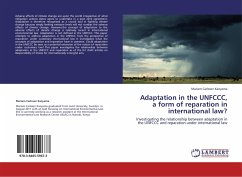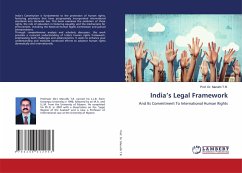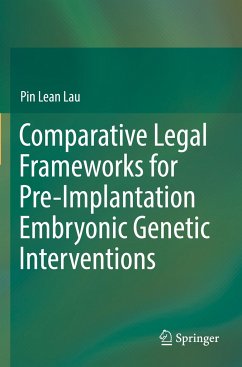
Understanding securitisation as a form of global health governance
and its implications for human rights
Versandkostenfrei!
Versandfertig in 6-10 Tagen
29,99 €
inkl. MwSt.

PAYBACK Punkte
15 °P sammeln!
This work discusses the global governance of health through different governing frameworks such as legal, economic, and/ or technological governance. However, the focus of this paper lies on the governance of global health through the concept of securitisation. It therefore examines what securitisation is as a social-legal health governance tool and its implications on governing infectious and non-infectious diseases, which are considered threats to the security of health. Despite many forms of governance, it will be demonstrated that a relationship exists between them, which ultimately helps ...
This work discusses the global governance of health through different governing frameworks such as legal, economic, and/ or technological governance. However, the focus of this paper lies on the governance of global health through the concept of securitisation. It therefore examines what securitisation is as a social-legal health governance tool and its implications on governing infectious and non-infectious diseases, which are considered threats to the security of health. Despite many forms of governance, it will be demonstrated that a relationship exists between them, which ultimately helps to holistically govern global health. In other words, this work explores how legal governance and securitisation interact, and are mutually dependent on one another.Also, securitisation prioritises the attention being paid to particular threats to health, depending on the assertion of the degree of threat a disease may pose. This prioritisation may lead to the neglect towards the active provision of health amenities and the responsivity to abide by Human Rights such as the right to health. Several case studies are discussed to understand the role of securitisation and its implications.












